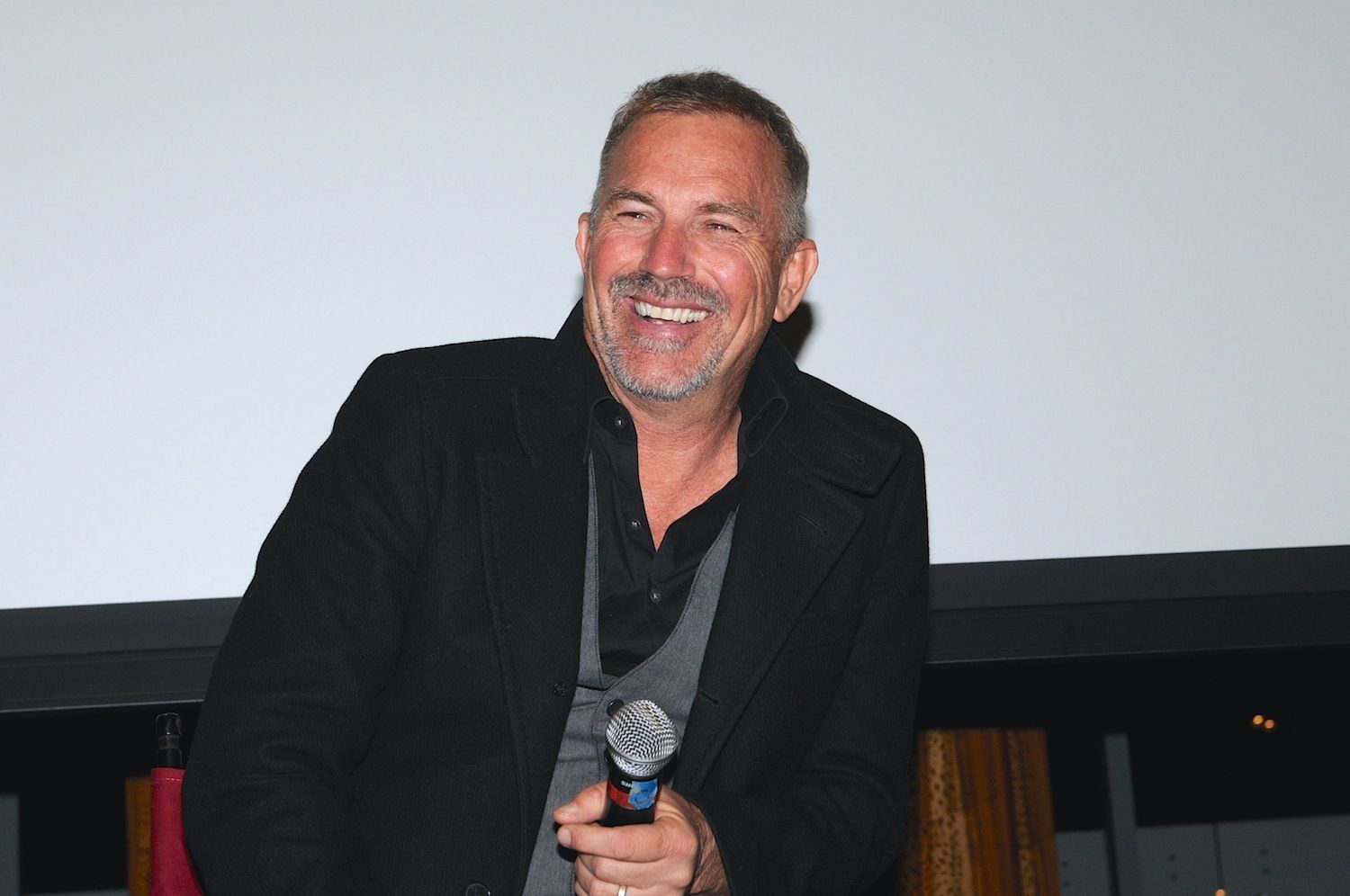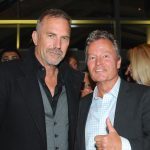Moved by what the film has to say about race in America and the current state of the nation, producer/actor Kevin Costner boldly defied unwritten rules of Hollywood and financed his latest movie, “Black or White.”
Costner, along with writer/ director/producer Mike Binder, in their first collaboration since 2005’s “The Upside of Anger,” appeared at the Malibu Film Society last Saturday for a Q&A after a special pre-release screening of “Black or White.” A packed house gave the film a standing ovation.
The film was inspired by a true story of a white man, raising his biracial granddaughter following the deaths of his wife and daughter, who becomes locked in a custody battle with the child’s black father and grandmother. Starring Academy Award winners Kevin Costner and Octavia Spencer, it’s a racially charged drama no movie studio wanted to touch.
“This movie has been like a salmon headed upstream,” Costner joked. “There’s been a lot of things trying to kill it.”
“[Binder’s] script was very magical to me and dealt with a difficult subject,” Costner said. “It was beautiful to me, and hard-hitting. I took it around to all the studios and they wouldn’t make it. I’d given Mike my word it would get made, so I financed this movie myself.”
Costner feels the film has universal appeal because, at its core, it’s about loss and fear – emotions that are “common denominators” for all humans.
“Only people that don’t love don’t feel loss,” he said.
His most dramatic scene takes place on the witness stand during the custody trial.
“It’s just me talking for three or four pages of script. My guy has had it with political correctness and the race card, and he unloads,” he said. “It seems like a big scene, but the movie has to build up to that moment. Having a great scene without the buildup wouldn’t have the same emotional impact.”
Binder commented on the intensity with which Costner approached his role.
“He’s so involved as an actor that I had to do everything else until shooting was over,” Binder said. “Then we worked together on the post-production, and occasionally we did butt heads.”
The film also required a drastic makeover for Costner.
“I changed my voice for it, I chopped my hair off, and I put on weight for the role,” Costner said. “But I got to say things many people wish they could’ve said at times. The performance was pretty naked.”
In an interview with The Malibu Times, Costner was asked if he was able to get out of character when he went home to his wife and children.
“I work on my character way before the movie ever starts, but I don’t carry it over to my family,” he said. “We don’t hear, ‘What’s wrong with Daddy?’ at my house.”
The actor hopes the film’s message of unwavering love is clear.
“In the movie, it wasn’t important who got [custody of] the girl, what was important was that this girl was loved; and she was loved in Compton and she was loved in Brentwood,” Costner said.
Despite warnings from those in Hollywood, Costner said he had no fear of getting the film made.
“This movie was rewarding and made a big difference in my life and it just reminded me to follow my heart. A lot of people told me I was brave for making a movie that tackled controversial subject matter,” Costner said. “I must be the mongoose in with the cobra – I don’t know I’m supposed to be afraid.”
“If you’re out there trying to make art, entertain and tell a story, there’s no reason why we have to cave in to conventional wisdom. What if everybody else is wrong?” Costner said.
The film also ties in strongly with the nation’s current conversation on race in the wake of the decision not to indict a police officer who shot and killed Mike Brown, an unarmed teenager in Ferguson, Mo.
“People take things away from movies, and ‘Black or White’ is a great stepping-off place for a discussion about race in America,” Costner said. “It’s an authentic look today at where we are with race.”
Relativity Media’s newly formed multicultural division acquired the U.S. distribution rights to the film, which will be released in time to qualify for the Oscar race.




